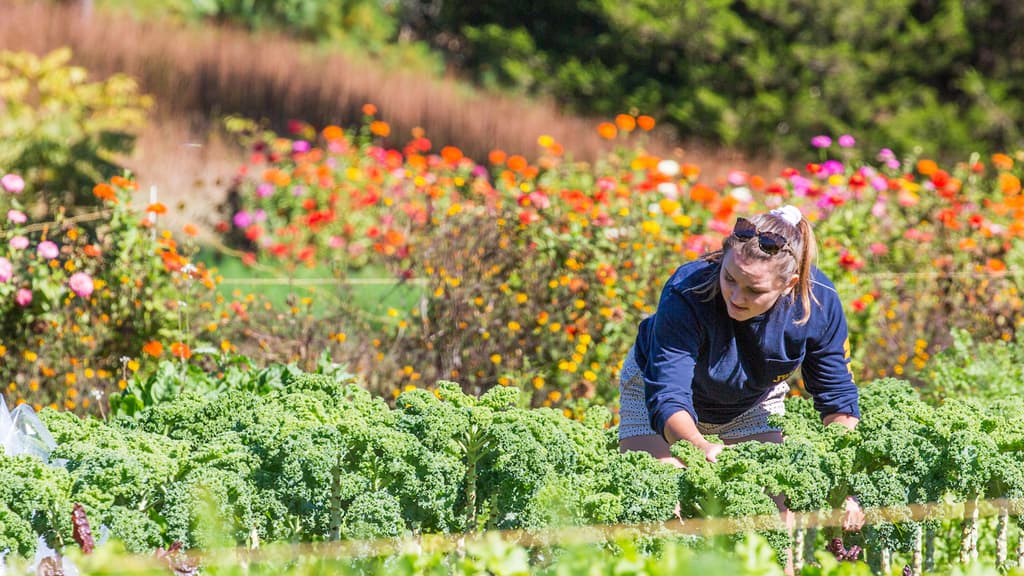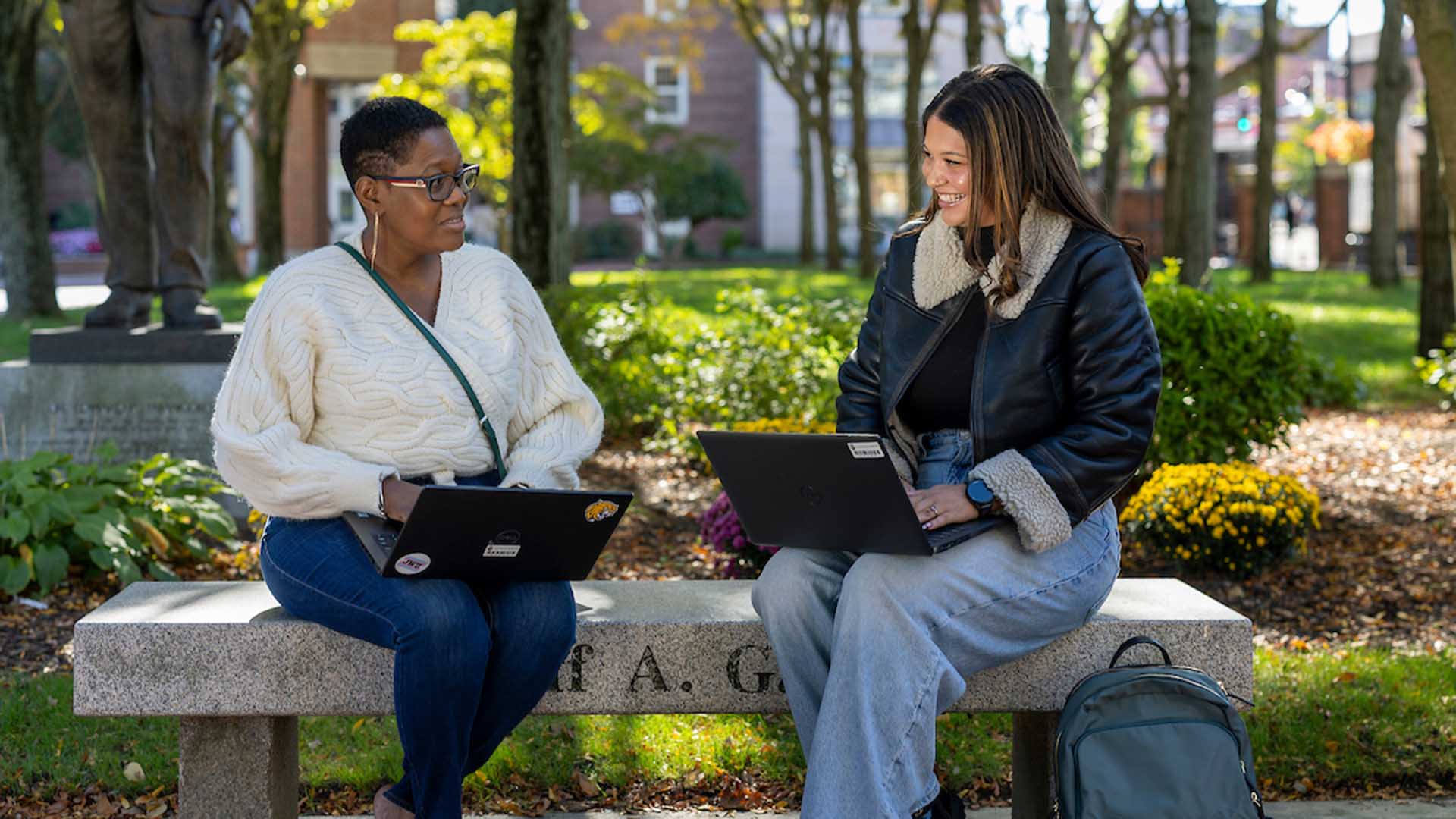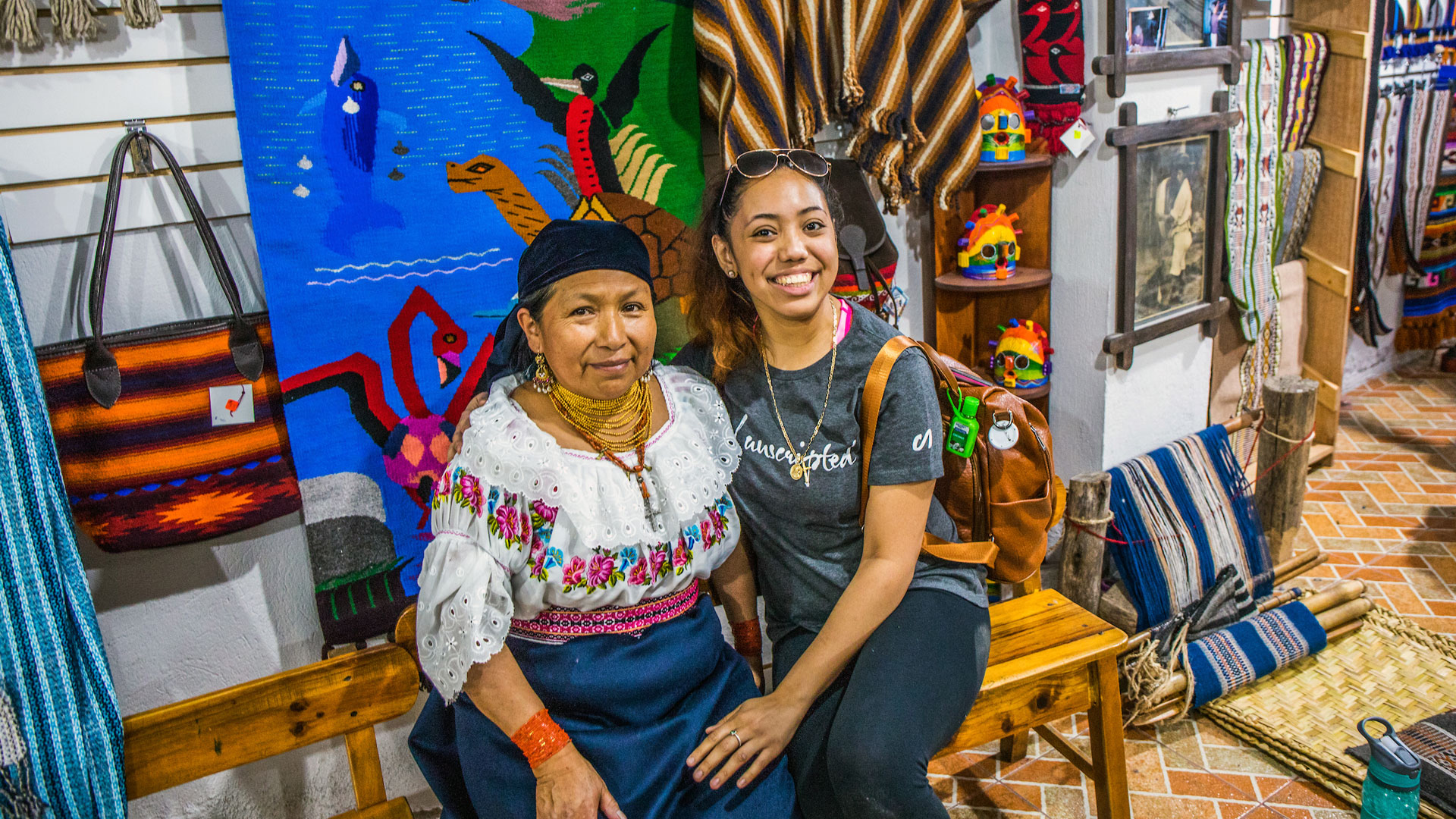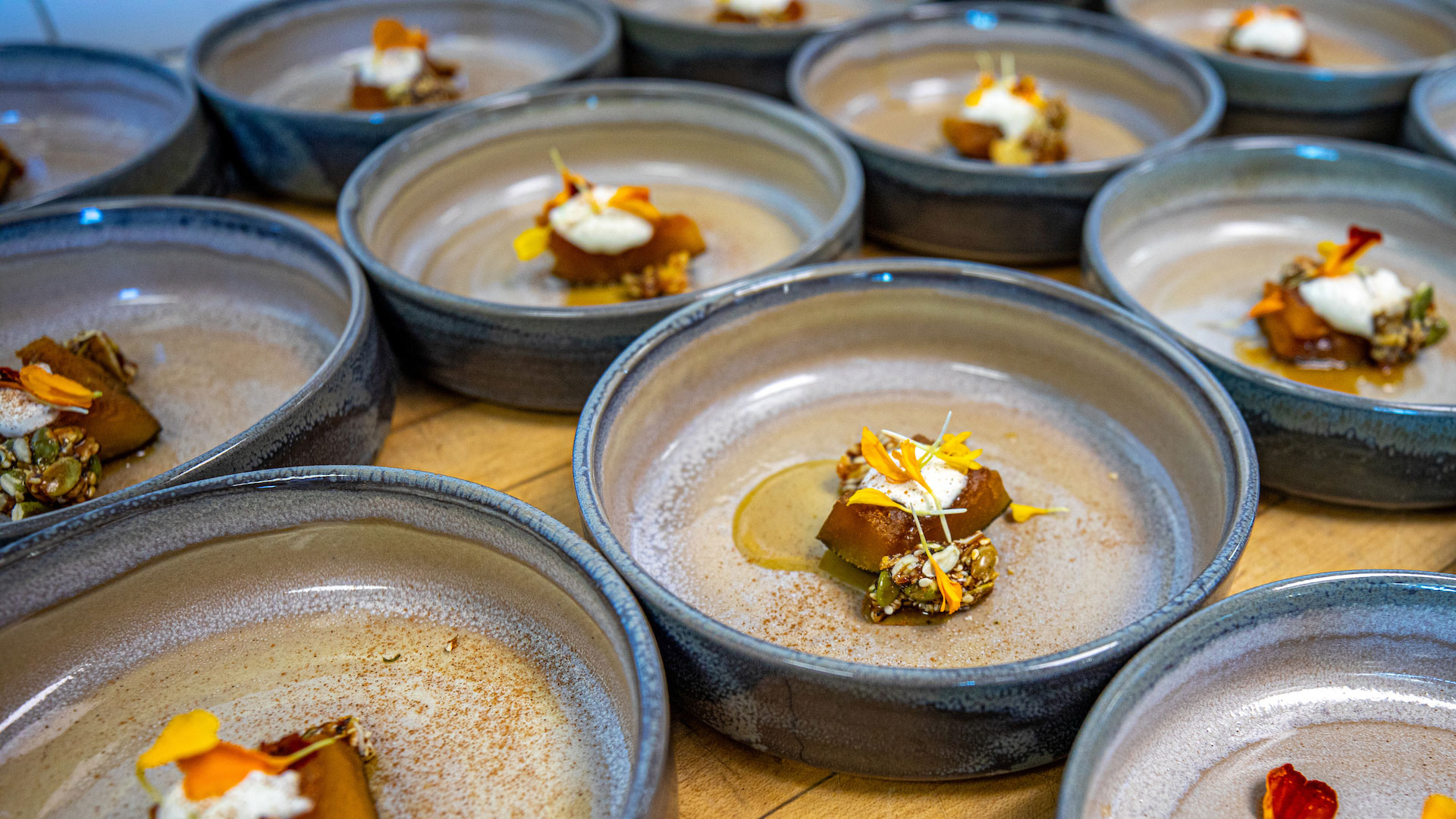How to Celebrate Earth Day at Home
In a typical year, Earth Day is celebrated universitywide at JWU with tree plantings, film screenings, and other activities to raise awareness, educate, and promote sustainable practices. JWU Providence’s Energy Conservation Office (ECO) hosts ShredFest and other energy/material-saving initiatives. Culinary students create blended burgers and other meat-minimal dishes; Bee the Change, JWU Providence’s beekeeping group, sells their own honey; and numerous student groups organize cleanup efforts and recycling drives.
But this year — the 50th anniversary of Earth Day, no less — is obviously quite different at JWU. There will be no Sustainability Weeks, no Days of Impact, and no group tree plantings. But there are still ways that you can contribute, on Earth Day and every day.
Earth Day Reading
You could certainly fill an entire library with classic and new books on the topic of sustainability, from Rachel Carson’s “Silent Spring” to Michael Pollan’s “The Omnivore’s Dilemma” and Tara Button’s “A Life Less Throwaway.”
There are multiple ways that the novel coronavirus has impacted and highlighted climate change — read JWU alum and climate change expert Michael Cote’s interview to learn more — and has made us collectively more aware of the ways we’re all connected.
Reduce, Rethink, Reuse
Reuse expert Alex Eaves made the documentary “Reuse: Because You Can’t Recycle the Planet” in order to illustrate how easy it is to incorporate proactive habits into our everyday lives.
When Eaves visited JWU two years ago, he offered the following advice: “The easiest way that anybody can start is with your coffee cup. You hear a lot about all of these recyclable paper cups in the coffee shops but the truth is they’re not recyclable a lot of times. Even if they’re out in a recycling bin it all gets put into the trash. Most of those cups have plastic linings so the easiest thing to do is just remember your travel mug.” (You can also watch his video, below.)
How Does Your Garden Grow?
JWU North Miami’s Student Involvement & Leadership hosted an Earth Day demonstration by the JWU Gardening Club, who shared their tips and tricks for going green in your own backyard — or apartment, if you have a sunny windowsill. “We learned about growing our own vegetables from seeds, repotting succulents, and even about all the different plant species on campus!” (The North Miami Campus is home to more than 100 global varieties of fruits, vegetables, herbs and legumes.)
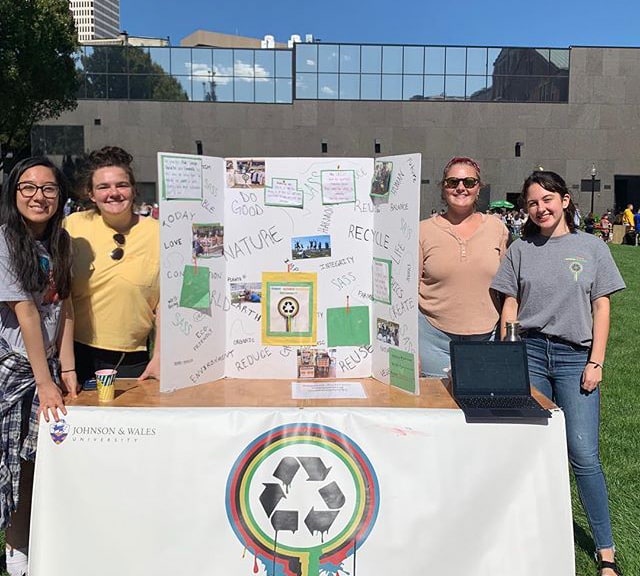
The Gardening Club has the following advice for beginner gardeners: “Start with seedlings that are already grown and go from there. You can reuse egg cartons to regrow plants instead of throwing the carton in the garbage!” (You can also regrow scallions by putting the ends — including the roots — in water and placing the container on a well-lit window sill or counter.)
Make Way for Bees 🐝
Amanda Scully of JWU Providence’s Bee the Change group recommends choosing bee- and pollinator-friendly plants for your garden. “The average spring hive has 10,000 bees, and they travel an average of 3 miles but can go up to 5 miles. So plant ‘bee-friendly’ flowers such as sunflowers, buttercups, hollyhocks and lavender, and reduce your use of pesticides to ensure the bees are able to pollinate properly!”
Sustainability Starts at Home
Emma Jellinick, a JWU Providence sophomore majoring in Public Health, is also president of JWU’s Student Activists Supporting Sustainability (SASS). The group typically organizes film screenings, park cleanups and other eco-conscious events. (They also collaborated with the Club of Culinary Excellence and Cooking Asia to build and oversee the raised garden beds at the Harborside Campus.)
She offered up the following practical advice for making your home more sustainable:
- Pick up a new sustainable hobby! Take care of some house plants (that can be low maintenance) or start gardening. The springtime is a great time to start planting your own fruits and veggies.
- Make reusable masks out of some older clothes instead of using disposable ones. Use reusable gloves as well that you can wash regularly to keep clean and sanitary.
- Get rid of things you don’t need — and donate them, of course! There are so many people in the world who are suffering without food and clothes. Declutter your apartment, room etc. and donate what you do not need. You can also upcycle your old clothing into something cute and stylish.
- Educate yourself! There are so many TED talks and other educational outlets like Save the Bay RI that can teach you so much about how to be a sustainable activist and how to make a difference!
Finishing up with a video to remind you that we are better together.
BELOW: GLEANING AS PART OF A SASS-SPONSORED TRIP TO AN EXETER FARM. PHOTO BY MIKE COHEA.
